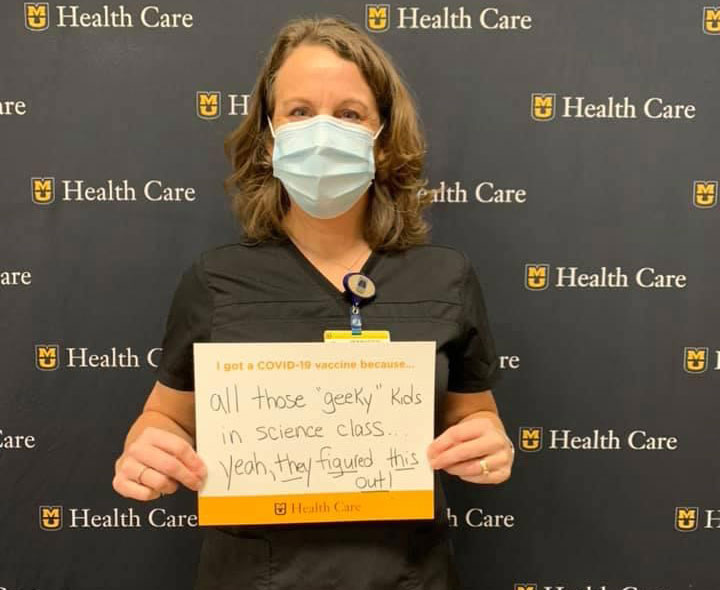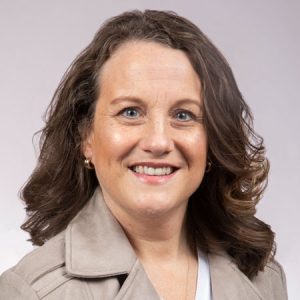March 18, 2021
When MU Health first started vaccinating health care workers, Jenny Keely, associate clinical professor in respiratory therapy, was among the first to receive the COVID-19 vaccine. Keely, a licensed respiratory therapist, has worked several Saturday shifts at University Hospital on a non-Covid unit in order to alleviate some staffing shortages the hospital has experienced due to COVID-19.
We talked to Keely, BHS ’01, M Ed ’12, about her experience working at the hospital and her decision to get the vaccine:
Q: What went into your decision to get the COVID-19 vaccine?
A: Ultimately, it came down to weighing any hesitation I had against trusting the competence of the people who developed the vaccine. I chose to trust the scientific evidence we have so far that says it’s safe. The possibility of the vaccine bringing about the end of this pandemic is worth the minimal risk to me.
Q: Did you experience any side-effects after getting it?
A: My experience with side effects was on par with what I’ve heard others experienced. My arm was sore for less than 24 hours. I felt some chills and fatigue on the same day. The next day, I experienced very transient things, like nausea, muscle aches, and fatigue. When I say transient, I mean they lasted just a few hours and were gone. There was nothing that incapacitated me. I got a lot done that weekend!

Q: How has it felt to be able to help out at the hospital during such a difficult time?
A: I have loved being back in the hospital. It is a busyness that is very different from academia. I’m there often with students throughout the school year, but it has been great just functioning as a staff therapist again. I have missed it. Though I know it’s a good sign that the hospital hasn’t needed me as much lately, I’m a little sad that my time staffing seems to be winding down again.
Q: What do you wish others knew about the Respiratory Therapy profession?
A: Respiratory therapists’ educational background is very similar to that of nurses, but with a specialty in the cardiopulmonary system. I remember telling a nurse about a physics class I took in college and she was shocked that RTs study physics. Gas flow, which is our gig, is nothing but physics! Our job responsibilities and autonomy vary widely from hospital to hospital. Increasingly, RTs are given more autonomy to function as the critically thinking clinicians we are trained to be, rather than just someone who gives nebulizer treatments.
